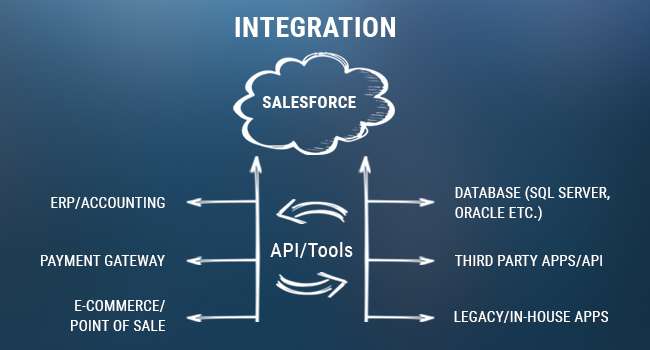The Benefits of Integration
In today’s fast-paced world, integration has become an essential aspect of various industries. It refers to the process of combining different elements or systems to create a unified and cohesive whole. Integration can bring numerous advantages to businesses, organizations, and individuals. In this article, we will explore the benefits of integration and how it can help you achieve success in your endeavors.
Improved Efficiency and Productivity
One of the primary benefits of integration is improved efficiency and productivity. By integrating different systems, processes, or departments within an organization, you can streamline operations, reduce duplication of efforts, and eliminate manual tasks. This integration allows for seamless data flow, leading to faster decision-making and increased productivity. With automation and optimized workflows, your team can focus on more critical tasks, ultimately driving growth and success.
Enhanced Data Accuracy and Decision Making
Integration plays a crucial role in ensuring data accuracy and integrity. When various systems are integrated, information is shared in real-time, eliminating the need for manual data entry and reducing the risk of errors. Accurate and up-to-date data is vital for making informed decisions, identifying trends, and predicting future outcomes. Integration enables you to have a comprehensive view of your data, facilitating better decision-making and strategic planning.
Seamless Customer Experience
Integrating different systems and touchpoints can greatly enhance the customer experience. By integrating customer relationship management (CRM) systems, e-commerce platforms, and other relevant tools, you can provide a seamless and personalized experience to your customers. Integration allows for a unified view of customer data, enabling you to understand their preferences, behavior, and purchase history. This information can be utilized to deliver targeted marketing campaigns, personalized recommendations, and exceptional customer service.
Cost Savings
Integration can lead to significant cost savings for businesses. By eliminating duplicate systems, streamlining processes, and reducing manual tasks, you can optimize resource allocation and minimize operational expenses. Integration also enables better inventory management, supply chain coordination, and vendor collaboration, resulting in reduced costs and improved efficiency. Additionally, integration reduces the need for manual data reconciliation and enhances data accuracy, saving both time and money in the long run.
Increased Agility and Adaptability
In today’s rapidly evolving business landscape, agility and adaptability are crucial for success. Integration allows organizations to respond quickly to market changes, customer demands, and emerging trends. By integrating systems and processes, you can easily scale your operations, introduce new products or services, and adapt to changing business requirements. Integration provides the flexibility needed to stay ahead of the competition and seize new opportunities.

Integration offers a wide range of benefits that can significantly impact the success of businesses and organizations. From improved efficiency and productivity to enhanced data accuracy and customer experience, integration plays a vital role in driving growth and achieving competitive advantage. By embracing integration and leveraging the power of seamless connectivity, businesses can unlock their full potential and thrive in today’s dynamic and interconnected world.
Frequently Asked Questions – Benefits of Integration
1. What is integration and why is it important?
Integration refers to the process of combining different parts or systems into a unified whole. It is important because it allows for seamless communication and collaboration between various components, leading to increased efficiency and improved performance.
2. How does integration benefit businesses?
Integration benefits businesses by streamlining operations, reducing manual work, and improving data accuracy. It enables real-time access to information, enhances decision-making, and promotes better customer service, ultimately driving growth and profitability.
3. What are the advantages of integrating software applications?
Integrating software applications eliminates data silos and enables data sharing between different systems. This leads to improved productivity, better visibility across departments, and the ability to automate processes, resulting in time and cost savings.
4. How does integration enhance customer experience?
Integration enhances customer experience by providing a unified view of customer data across multiple touchpoints. This allows businesses to deliver personalized and consistent experiences, respond quickly to customer inquiries, and offer seamless interactions, leading to increased satisfaction and loyalty.
5. Can integration help improve data accuracy?
Yes, integration can significantly improve data accuracy by eliminating manual data entry and reducing the risk of errors associated with duplicate or inconsistent data. It ensures that information is synchronized across systems, leading to reliable and up-to-date data for analysis and decision-making.
6. How does integration support business scalability?
Integration supports business scalability by providing a flexible and scalable infrastructure. It allows businesses to easily adapt and integrate new applications or systems as they grow, ensuring that processes and data remain interconnected and can handle increased workload and complexity.
7. What role does integration play in business intelligence?
Integration plays a critical role in business intelligence by integrating data from various sources and systems into a centralized data warehouse or analytics platform. This enables businesses to gain comprehensive insights, perform in-depth analysis, and make data-driven decisions to drive business growth.
8. Can integration help with supply chain management?
Yes, integration can greatly help with supply chain management. It enables seamless communication and data exchange between suppliers, manufacturers, distributors, and retailers, improving visibility, reducing delays, and optimizing inventory levels, ultimately enhancing supply chain efficiency and effectiveness.
9. How does integration contribute to cost savings?
Integration contributes to cost savings by eliminating manual and repetitive tasks, reducing data errors, and streamlining processes. It minimizes the need for manual data entry, reduces IT maintenance costs, and enables efficient resource allocation, resulting in overall cost reductions for businesses.
10. What are some challenges in implementing integration?
Some challenges in implementing integration include system compatibility issues, data security concerns, complex integration workflows, and the need for skilled resources. However, with proper planning, robust integration tools, and expert assistance, these challenges can be overcome to achieve successful integration.




